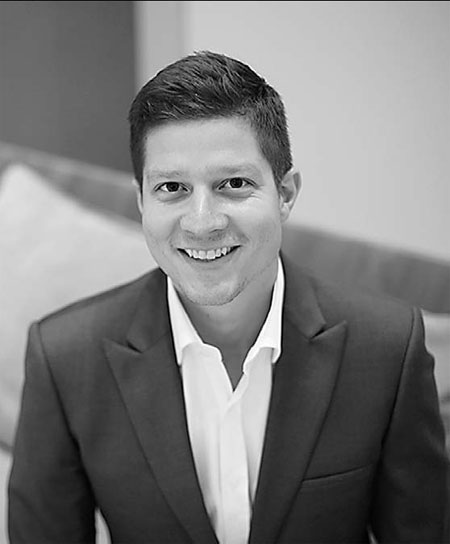Sweet dreams
Updated: 2012-10-28 15:47
By Rebecca Lo (China Daily)
|
|||||||||||
 |
|
Herrera says you need a dedicated environment for sleeping and a bedtime that usually doesn't vary by more than an hour to keep your body clock stable. Photos Provided to China Daily |
 |
|
Herrera is currently speaking at the Soneva Fushi resort in the Maldives, but you can learn to sleep better closer to home, too. |
Sleep specialist Christopher Herrera reveals to Rebecca Lo how slumber keeps one healthy in body and mind.
People occasionally compare me to a vampire because of my unusual sleep patterns. When I'm busy, I can go for months on a few hours of sleep per night and feel rested enough for 18- or 20-hour days.
But, according to sleep scientist Christopher Herrera, my odd nocturnal habits may be affecting my health.

He should know. The Texan has conducted extensive studies on sleep physiology and has a PhD in health sciences from the University of Sydney.
Herrera now lives with his wife Rae-leen in Doha, where he is a full-time researcher exploring the relationship between sleep and human performance at Aspetar-Qatar Orthopedic and Sports Medicine Hospital's Research and Education Centre.
Herrera says he transformed his life in his mid-20s, when he lost more than 22 kg over four months, after taking a hard look at himself and his unhealthy combination of irregular sleep, poor diet and lack of physical activity.
"This is one of those examples of how a career found me," Herrera says.
"I've always had an interest in the human brain and behavior. Soon after my training in psychology, I started working as a sleep technician near my hometown in Texas.
"I was fortunate to have been mentored by Jerald H. Simmons, a neurologist who was trained in sleep medicine at Stanford University."
However, what truly changed Herrera was his transformation in 2005, since when he has worked to improve and educate other people too.
He believes that many people do not understand the negative effects of poor sleep quality upon health. While the importance of regular exercise and eating healthily have been publicized due to China's rising obesity dilemma, sleep is often left out of the equation.
"Unfortunately, in many societies, sleep is often seen as lazy behavior," explains Herrera. "This could not be further from the truth. Prioritizing sleep and maintaining good sleeping habits is actually a sign that one is making attempts to prioritize health."
He sees the active nightlife of many Asians, such as dragging children along to late dinners or mahjong games, as a contributing factor to bad sleeping habits in the East.
"In addition, work hours are delayed in comparison to most North American cities, and it may be common for people to observe a light period of inactivity in the early afternoon," he observes.
"There are many reasons. But importantly, these differences have not been consistently shown to cause poor health while quite the contrary may be true."
Another common myth is that sleeping on weekends will allow us to catch up on the sleep we lack during busy weekdays. Napping on the bus, or on desks at work, or during a really good massage, may appear to leave us feeling refreshed, but Herrera stresses the importance of regular sleep every night.
"Most adults require between seven to nine hours of nightly sleep for optimal daytime functioning and health," he states. "When we lose sleep on a single night, we start to accumulate a sleep debt. This sleep debt must be repaid in actual sleep - if not, eventually there will be negative health consequences.
"Even if it's possible to sleep 13 to 15 hours on weekends, it would cause our internal body clock to be delayed and make it very difficult to sleep on schedule when the weekend ends."
The effects of lifestyle habits and stress typically give rise to insomnia and Herrera says this is often due to inappropriate activities before bedtime.
"For example, many people do not maintain a regular sleep-wake schedule, which can cause the internal body clock to become unstable," he notes.
"Others may engage in too many stimulating activities in the hours leading up to bedtime. For those with more substantial insomnia complaints, I combine specific behavioral techniques that can change the internal body clock so that it is in sync with the person's individual sleep needs."
Herrera suggests a dedicated environment for sleeping and to avoid deviating from sleeping and waking daily by more than one hour each way. He is scheduled to discuss these topics at a series of "sleep and health" workshops and consultations at Soneva Fushi, in the Maldives between Oct 25 and Nov 9.
The resort offers an idyllic setting while relaxing massages and fresh, gourmet dishes further enhance sweet dreams.
"My workshops are designed to be fun, inspiring and offer more of an experience to learn about our own health and wellness," he explains.
"Breaking down physical health into the basic components of diet, exercise and sleep, I believe this brings a type of organic assessment of our basic health needs."
He says the environment at Soneva Fushi provides an environment free of business, noise and stress.
"The body and mind can be realigned, implementing an optimal healthy lifestyle that can be taken back home."
Contact the writer at sundayed@chinadaily.com.cn.
Today's Top News
Rescuers race against time for quake victims
Telecom workers restore links
Coal mine blast kills 18 in Jilin
Intl scholarship puts China on the map
More bird flu patients discharged
Gold loses sheen, but still a safe bet
US 'turns blind eye to human rights'
Telecom workers restore links
Hot Topics
Lunar probe , China growth forecasts, Emission rules get tougher, China seen through 'colored lens', International board,
Editor's Picks

|

|

|

|

|

|





